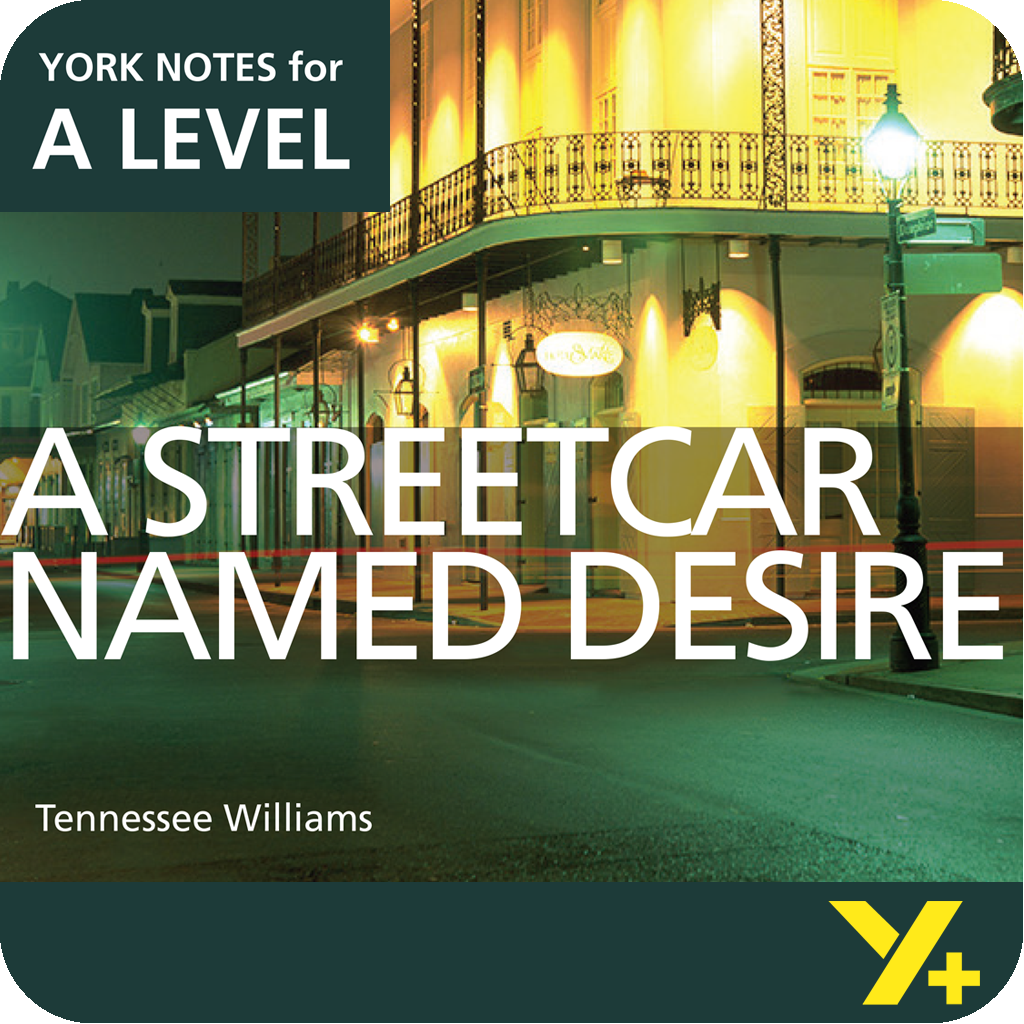Examiner's Notes
You assessed this answer as a Mid.
Hover over the highlighted text to read the examiner’s comments. These are linked to the Assessment Objectives, which are listed in the side panel.
Desire is obviously important in the play because it is in the title. Also, Blanche arrives at the Kowalski home on a streetcar (tram) heading towards a place in New Orleans called Desire. Tennessee Williams had actually seen this. For some characters in the play desire is definitely dangerous and destructive, for others it is not so bad.
Blanche was married to a husband who was a secret homosexual, like Tennessee Williams, and his desire led to his suicide, which must have been destructive for Blanche. She feels guilty and still has a lot of hallucinations about it, including the gunshot by the lake that told her he was dead. To Stella, this young man was a ‘degenerate’, because at the time homosexuality was against the law and seen as perverted.
Desire is also dangerous for Blanche because after her husband’s suicide she ended up in a cheap hotel where the management were used to ‘goings-on’, but even they were shocked by Blanche because she had so many lovers there. Even soldiers from the local army camp came there for her. Then they got picked up and carried back ‘like daisies’. All this ruined her reputation, and she eventually had to leave even this hotel, the Flamingo. Finally desire also leads to Blanche losing her teaching job for having sex with a student: she is labelled ‘unfit for her position’. She must prefer younger men, like her husband and the student, and she even steals a kiss from a paper boy who calls round. She says he is like a young Arabian knight. She also says she is meant to keep ‘my hands off children’, but she just has to play with fire, even when Mitch is about to come round.
Mitch is fascinated by Blanche and wants her. But when he discovers her past, he can’t take it. When she gets led away he cries, and Stanley calls him a ‘bone-headed cry-baby’. His desire is destructive because he has lost his dream of Blanche and the respect of Stanley. Mitch likes Blanche’s personality and wild imagination, but he desires her too. Then, hearing about her love-life he goes off the idea of marriage but he still wants sex with her. He is basically a typical man of his time and Stanley’s mate, so he also regards Blanche’s behaviour as dirty: she is almost a whore. Feminists would see this as completely unfair. Stanley himself is said early on to look at women a lot, and he rapes Blanche. He blames her for not being sexually pure, and so Mitch does too.
Desire is far less destructive for Stella. She loves Stanley blindly and sometimes ‘cries in his lap like a baby’. Desire is also positive for her because it leads to motherhood. She has dropped her standards by falling for Stanley, but she is happy – even when he hits her and breaks crockery. She basically ignores Blanche when she tells her story about Stanley and his friends as being like ‘apes’ or cavemen. She says Stella has accepted a ‘sub-human’ existence with no hope of higher goals like ‘poetry and music’. Despite her snobbery, I feel she may have a point here, as at one point we see Stella reading a comic book – whereas Blanche goes on about literature, like Edgar Allan Poe. So in this way Stella’s desire has destroyed her social position.
For Stanley desire is represented by the ‘coloured lights’ that he turns on to have sex with Stella. He is very happy with her, except when she threatens to leave at the end of Scene Three because he has hit her. However, he still betrays her by raping her sister. He tells her that everything will be all right again when they can ‘get those coloured lights going’ and ‘make noise again’, after Blanche has gone. For him, Blanche just gets in the way and interferes with his sex life. Even so, he does not mind ‘interfering’ with her as he puts it at the end of Scene Ten. He says: ‘We’ve had this date with each other from the beginning!’, as if it was inevitable, so he cannot be blamed. He makes it sound like they are just going out on a ‘date’.
